 W
WSusanne Albers is a German theoretical computer scientist and professor of computer science at the Department of Informatics of the Technical University of Munich. She is a recipient of the Otto Hahn Medal and the Leibniz Prize.
 W
WGéza Alföldy was a Hungarian historian of ancient history.
 W
WAntje Boetius is a German marine biologist. She is a professor of geomicrobiology at the Max Planck Institute for Marine Microbiology, University of Bremen. Boetius received the Gottfried Wilhelm Leibniz Prize, with 2.5 million euros in funding, in March 2009 for her study of sea bed microorganisms that affect the global climate. She is also the director of Germany's polar research hub, the Alfred Wegener Institute.
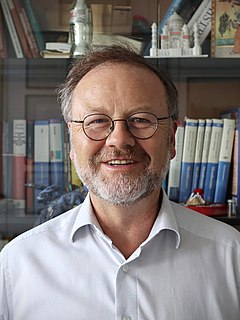 W
WHolger Braunschweig, ML FRSC, is Head and Chair of Inorganic Chemistry at the Julius-Maximilians-University of Würzburg in Würzburg, Germany. He is best known for founding the field of transition metal-boron multiple bonding, the synthesis of the first stable compounds containing boron-boron and boron-oxygen triple bonds, the isolation of the first non-carbon/nitrogen main-group dicarbonyl, and the first fixation of dinitrogen at an element of the p-block of the periodic table. By modifying a strategy pioneered by Prof. Gregory Robinson of the University of Georgia, Braunschweig also discovered the first rational and high-yield synthesis of neutral compounds containing boron-boron double bonds (diborenes). In 2016 Braunschweig isolated the first compounds of beryllium in the oxidation state of zero.
 W
WManfred Broy is a German computer scientist, and an emeritus professor in the Department of Informatics at the Technical University of Munich, Garching, Germany.
 W
WJohannes Alfred Buchmann is a German computer scientist, mathematician and professor emeritus at the department of computer science of the Technische Universität Darmstadt.
 W
WWolfram Burgard is a German roboticist. He is a full professor at the Albert-Ludwigs-Universität Freiburg where he heads the Laboratory for Autonomous Intelligent Systems. He is known for his substantial contributions to the simultaneous localization and mapping (SLAM) problem as well as diverse other contributions to robotics.
 W
WThomas Carell is a German biochemist.
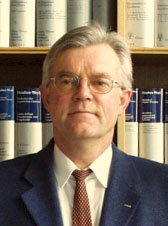 W
WDieter Enders was a German organic chemist who did work developing asymmetric synthesis, in particular using modified prolines as chiral auxiliaries. The most widely applied of his chiral auxiliaries are the complementary SAMP and RAMP auxiliaries, which allow for asymmetric alpha-alkylation of aldehydes and ketones. In 1974 he obtained his doctorate from the University of Gießen studying under Dieter Seebach and followed this with a postdoc at Harvard University studying with Elias James Corey. He then moved back to Gießen to obtain his Habilitation in 1979, whereupon he became a lecturer, soon obtaining Professorship in 1980 as Professor of Organic Chemistry at Bonn. In 1985 he moved to Aachen, where he was Full Professor of Organic Chemistry and Director. He was editor-in-chief of Synthesis and was on the advisory boards of many other journals including Letters in Organic Chemistry and SynLett.
 W
WGerhard Ertl is a German physicist and a Professor emeritus at the Department of Physical Chemistry, Fritz-Haber-Institut der Max-Planck-Gesellschaft in Berlin, Germany. Ertl's research laid the foundation of modern surface chemistry, which has helped explain how fuel cells produce energy without pollution, how catalytic converters clean up car exhausts and even why iron rusts, the Royal Swedish Academy of Sciences said.
 W
WHélène Esnault is a French and German mathematician, specializing in algebraic geometry.
 W
WArmin Falk is a German economist. He has held a chair at the University of Bonn since 2003.
 W
WGerd Faltings is a German mathematician known for his work in arithmetic geometry.
 W
WAnja Feldmann is a German computer scientist.
 W
WUte Frevert is a German historian. She is a specialist in modern and contemporary German history, as well as social and gender history. In January 2008, she was appointed managing director of the Max Planck Institute for Human Development and director of the Institute's Center for History of Emotions in Berlin.
 W
WAngela Friederici is a director at the Max Planck Institute for Human Cognitive and Brain Sciences in Leipzig, Germany, and is an internationally recognized expert in neuropsychology and linguistics. She is the author of over 400 academic articles and book chapters, and has edited 15 books on linguistics, neuroscience, language and psychology.
 W
WReinhard Genzel is a German astrophysicist, co-director of the Max Planck Institute for Extraterrestrial Physics, a professor at LMU and an emeritus professor at the University of California, Berkeley. He was awarded the 2020 Nobel Prize in Physics "for the discovery of a supermassive compact object at the centre of our galaxy", which he shared with Andrea Ghez and Roger Penrose. In a 2021 interview given to Federal University of Pará in Brazil, Genzel recalls his journey as a physicist; the influence of his father, Ludwig Genzel; his experiences working with Charles H. Townes; and more.
 W
WPeter Gruss is a German developmental biologist, president of the Okinawa Institute of Science and Technology, and the former president of the Max-Planck-Gesellschaft.
 W
WJürgen Habermas is a German philosopher and sociologist in the tradition of critical theory and pragmatism. His work addresses communicative rationality and the public sphere.
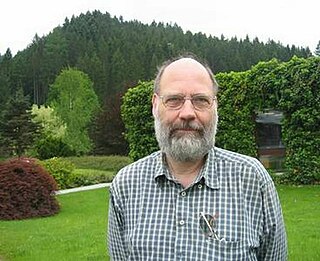 W
WWolfgang Hackbusch is a German mathematician, known for his pioneering research in multigrid methods and later hierarchical matrices, a concept generalizing the fast multipole method. He was a professor at the University of Kiel and is currently one of the directors of the Max Planck Institute for Mathematics in the Sciences in Leipzig.
 W
WTheodor Wolfgang Hänsch is a German physicist. He received one fourth of the 2005 Nobel Prize in Physics for "contributions to the development of laser-based precision spectroscopy, including the optical frequency comb technique", sharing the prize with John L. Hall and Roy J. Glauber.
 W
WGunther Hartmann is a German immunologist and clinical pharmacologist. Since 2007 he has been the Director of the Institute of Clinical Chemistry and Clinical Pharmacology at the University Hospital of the University of Bonn.
 W
WStefan Walter Hell HonFRMS is a Romanian-German physicist and one of the directors of the Max Planck Institute for Biophysical Chemistry in Göttingen, Germany. He received the Nobel Prize in Chemistry in 2014 "for the development of super-resolved fluorescence microscopy", together with Eric Betzig and William Moerner.
 W
WMatthias Werner Hentze is a German scientist. He is the Director of the European Molecular Biology Laboratory (EMBL) and Professor of Molecular Medicine at Heidelberg University.
 W
WUlrich Herbert is a German historian and a specialist in the Nazi era and German history during World War II.[Citation?]
 W
WWolfgang Anton Herrmann is a German chemist and academic administrator. From 1995 to 2019, he was President of the Technical University of Munich.
 W
WWerner Hildenbrand is a German economist and mathematician. He was educated at the University of Heidelberg, where he received his Diplom in mathematics, applied mathematics and physics in 1961. He continued his education at the University of Heidelberg and received his Ph.D. in mathematics in 1964 and his habilitation in economics and mathematics in 1968.
 W
WBerthold Karl Hölldobler is a German sociobiologist and evolutionary biologist who studies evolution and social organization in ants. He is the author of several books, including The Ants, for which he and his co-author, E. O. Wilson received the Pulitzer Prize for non-fiction writing in 1991.
 W
WGerhard Huisken is a German mathematician whose research concerns differential geometry and partial differential equations. He is known for foundational contributions to the theory of the mean curvature flow, including Huisken's monotonicity formula, which is named after him. With Tom Ilmanen, he proved a version of the Riemannian Penrose inequality, which is a special case of the more general Penrose conjecture in general relativity.
 W
WAnthony Arie Hyman FRS is a British scientist and professor at the Max Planck Institute of Molecular Cell Biology and Genetics.
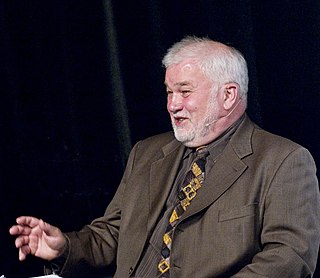 W
WJürgen Kocka is a German historian.
 W
WFerenc Krausz is a Hungarian-Austrian physicist, whose research team has generated and measured the first attosecond light pulse and used it for capturing electrons’ motion inside atoms, marking the birth of attophysics.
 W
WBenjamin List is a German chemist who is one of the directors of the Max Planck Institute for Coal Research and professor of organic chemistry at the University of Cologne. He co-developed organocatalysis, a method of accelerating chemical reactions and making them more efficient. He shared the 2021 Nobel Prize in Chemistry with David MacMillan "for the development of asymmetric organocatalysis".
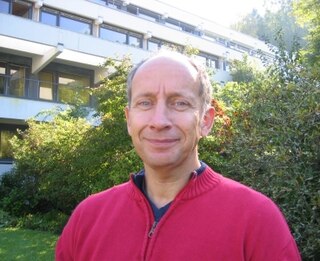 W
WWolfgang Lück is a German mathematician who is an internationally recognized expert in Algebraic topology.
 W
WKurt Mehlhorn is a German theoretical computer scientist. He has been a vice president of the Max Planck Society and is director of the Max Planck Institute for Computer Science.
 W
WHartmut Michel is a German biochemist, who received the 1988 Nobel Prize in Chemistry for determination of the first crystal structure of an integral membrane protein, a membrane-bound complex of proteins and co-factors that is essential to photosynthesis.
 W
WJoachim Milberg is a German engineer and manager who served as CEO of Bayerischen Motorenwerke AG (BMW). He was Chairman of the Supervisory Board of BMW until July 2015.
 W
WJürgen Mittelstraß is a German philosopher especially interested in the philosophy of science.
 W
WStefan Müller is a German mathematician and currently a professor at the University of Bonn. He has been one of the founding directors of the Max Planck Institute for Mathematics in the Sciences in 1996 and was acting there until 2008.
 W
WJohann Hermann Wolfgang Mulzer is a German organic chemist, best known for his work in total synthesis. Since 1996, he has been a professor of chemistry at the University of Vienna.
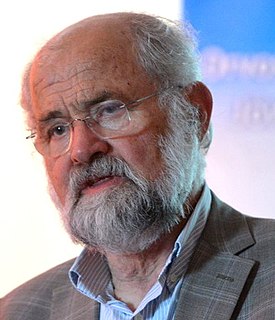 W
WErwin Neher is a German biophysicist, specializing in the field of cell physiology. For significant contribution in the field, in 1991 he was awarded, along with Bert Sakmann, the Nobel Prize in Physiology or Medicine for "their discoveries concerning the function of single ion channels in cells".
 W
WChristiane (Janni) Nüsslein-Volhard is a German developmental biologist and a 1995 Nobel Prize in Physiology or Medicine laureate. She is the only woman from Germany to have received a Nobel Prize in the sciences.
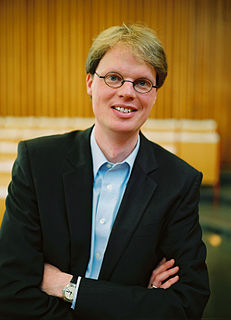 W
WAxel Ockenfels is a German economist. He is professor of economics at the University of Cologne. He also is Director of the Cologne Laboratory of Economic Research, Speaker of the "University of Cologne Excellence Center for Social and Economic Behavior ", and Coordinator of the DFG research unit "Design & Behavior".
 W
WFelix Otto is a German mathematician.
 W
WSvante Pääbo is a Swedish geneticist specialising in the field of evolutionary genetics. As one of the founders of paleogenetics, he has worked extensively on the neanderthal genome. Since 1997, he has been director of the Department of Genetics at the Max Planck Institute for Evolutionary Anthropology in Leipzig, Germany.
 W
WWolfgang Peukert is a German process engineer. He won the Gottfried Wilhelm Leibniz Prize in 2005.
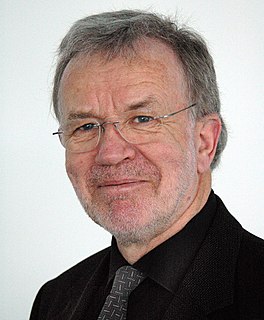 W
WWolfgang Prinz is a German cognitive psychologist. He is the director of the Max Planck Institute for Human Cognitive and Brain Sciences in Leipzig, Germany, and an internationally recognized expert in experimental psychology, cognitive psychology and philosophy of mind. He is the founder of the common coding theory between perception and action that has a significant impact in cognitive neuroscience and social cognition.
 W
WNikolaus Rajewsky is a German system biologist at the Max-Delbrück-Center for Molecular Medicine (MDC) and at the Charité in Berlin. He founded and directs the “Berlin Institute for Medical Systems Biology”.. He leads the Rajewsky lab, where he studies how RNA regulates gene expression. He also co-chairs LifeTime, a pan-European research initiative of more than 90 academic institutions and 70 companies, which aims to revolutionize healthcare by mapping, understanding, and targeting cells during disease progression. LifeTime integrates several technologies: single-cell multiomics, machine learning, and personalized disease models such as organoids. Rajewsky has received numerous awards and honors, including the most prestigious German award, the Gottfried Wilhelm Leibniz Prize, endowed with 2.5 million euros by the German Research Foundation (DFG).
 W
WHerbert Roesky, is an internationally renowned inorganic chemist.
 W
WBert Sakmann is a German cell physiologist. He shared the Nobel Prize in Physiology or Medicine with Erwin Neher in 1991 for their work on "the function of single ion channels in cells," and the invention of the patch clamp. Bert Sakmann was Professor at Heidelberg University and is an Emeritus Scientific Member of the Max Planck Institute for Medical Research in Heidelberg, Germany. Since 2008 he leads an emeritus research group at the Max Planck Institute of Neurobiology.
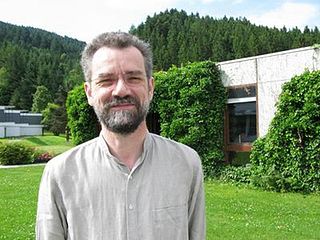 W
WPeter Bernd Schneider is a German mathematician, specializing in the p-adic aspects of algebraic number theory, arithmetic algebraic geometry, and representation theory.
 W
WFerdi Schüth is a German chemist.
 W
WPetra Schwille is a German professor and a researcher in the area of biophysics. Since 2011, she has been a director of the Department of Cellular and Molecular Biophysics at the Max Planck Institute for Biochemistry in Martinsried, Germany. She is known for her ground-laying work in the field of fluorescence cross-correlation spectroscopy, and numerous contributions on model membranes. Her current research focuses around bottom-up approaches to building an artificial cell within a broader area of synthetic biology. In 2010, Petra received the Gottfried Wilhelm Leibniz Prize.
 W
WBarbara Stollberg-Rilinger FBA is a German historian. She mainly researches the early modern period and has held the chair for early modern period and has held the chair for early modern history at the University of Münster. Stollberg-Rilinger is one of the leading representatives of research that examines the constitutional history of the Holy Roman Empire on the basis of symbolic-ritual forms of communication. Her work on rituals, symbolic communication and ceremonial influenced research on the exercise of power in the pre-modern era.
 W
WMichael Stolleis was a German jurist and historian. He was a law professor at Goethe University Frankfurt until 2006 and directed the Max Planck Institut für Europäische Rechtsgeschichte of the Max Planck Society from 1991 to 2009.
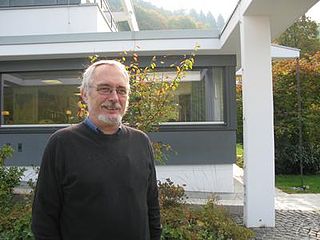 W
WEckart Viehweg was a German mathematician. He was a professor of algebraic geometry at the University of Duisburg-Essen.
 W
WRudolf G. Wagner was a German sinologist. He was Senior Professor at the Department of Chinese Studies at the Heidelberg University and Co-Director of the Cluster of Excellence "Asia and Europe in a Global Context: Shifting Asymmetries in Cultural Flows".
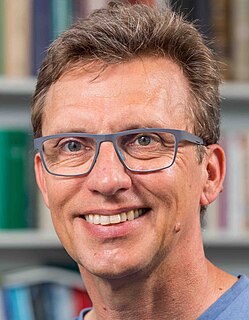 W
WDetlef Weigel is a German American scientist working at the interface of developmental and evolutionary biology.
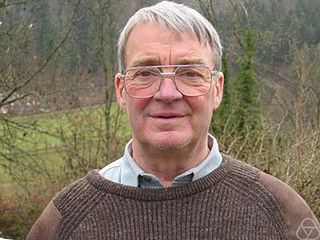 W
WJulius Erich Wess was an Austrian theoretical physicist noted as the co-inventor of the Wess–Zumino model and Wess–Zumino–Witten model in the field of supersymmetry. He was also a recipient of the Max Planck medal, the Wigner medal, the Gottfried Wilhelm Leibniz Prize, the Heineman Prize, and of several honorary doctorates.
 W
WGünter Matthias Ziegler is a German mathematician who has been serving as president of the Free University of Berlin since 2018. Ziegler is known for his research in discrete mathematics and geometry, and particularly on the combinatorics of polytopes.